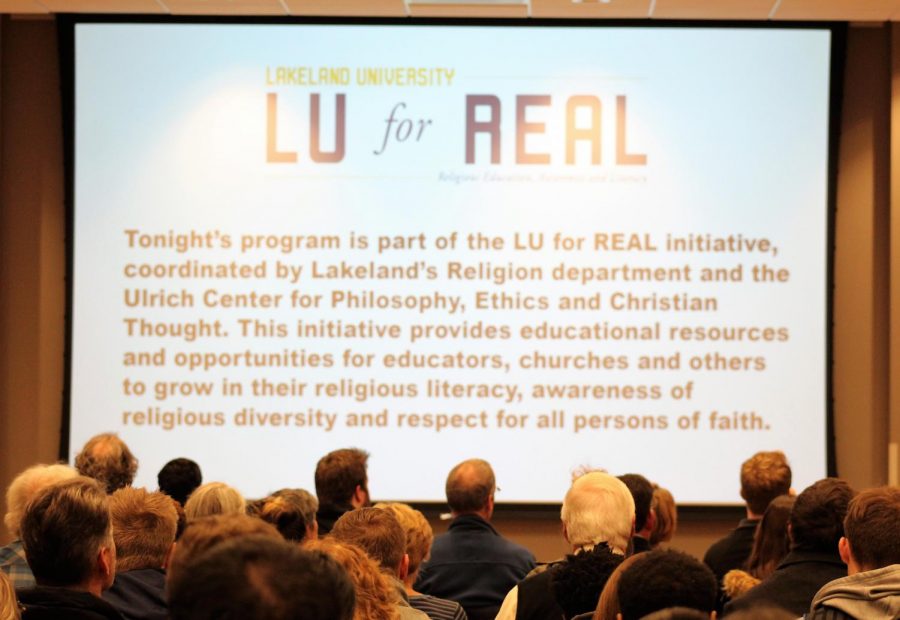Bringing Buddhism to Lakeland
November 21, 2018
Lakeland’s religion department coordinated an event on Nov. 12 in the campus center to explore the practices of Buddhism, educate the community and create an awareness and understanding of the religion.
Paul Norton, a spiritual director in Milwaukee, spoke to the audience about Buddhism. Norton hoped to share the practices of his religion with the community to spread awareness. His goal was to inform the audience while teaching people to have respect for all religions. He encouraged everyone to keep an open mind.
Norton explained the general principles of Buddhism, a religion that states most people are deluded about their place in life. However, the belief that anyone can attain clarity as mindfulness is also a center of this religion. According to Norton, Buddhism is about. “living in the present moment. It’s all about being aware of mind and body sensations. You should pay attention to one thing at a time.”
Norton also described the life and journey of Buddha, who had been the prince of a small kingdom during the Axial Age. Buddha abandoned this life and fled to the forest where he began his journey. He spent a year with meditation masters and spent five years as an ascetic, which revolves around self-discipline. He later discovered the middle path, the middle way of moderation, between the extremes of sensual indulgence and self-mortification, and spent his time wandering and teaching for 45 years.
Norton also clarified that Buddhism is split into various schools which are Theravada, Mahayana and Vajrayana. There are multiple ways of practicing today and different cultures modify the teachings. Norton likes to tell people, “We are a disorganized religion and proud of it.”
Followers of Theravada, formerly known as Hiniyana, believe their practice aligns best to what Buddha had originally taught. Mahayana includes a lot of meditation, and the followers of this practice believe there is no soul to be saved. Vajrayana, which is taught in Tibet, is followed by people who believe in allowing their mind to wander and reflect on where it goes.
Norton noted the Four Noble Truths in Buddhism: suffering, the cause of suffering, the end of suffering and the path to the end of suffering. The religion states that all humans suffer and that it is not an accident, but an inherent part of life. According to Buddhism, people mostly suffer because they cling to things they want and are highly avert to things they do not want.


